Share
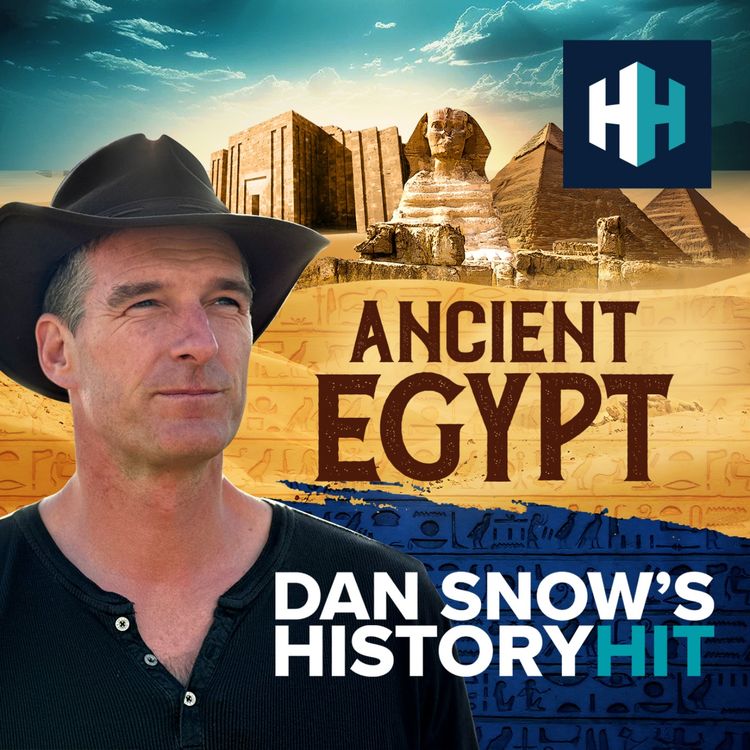
Dan Snow's History Hit
Life and Death in Greco-Roman Egypt
In its final centuries, Ancient Egypt was conquered by the Persians, the Greeks and the Romans, beginning with the invasion of Alexander the Great in 332 BC. But these new arrivals didn't squash the Egyptian way of life - the invaders blended their customs, practices and style with the native Egyptians. This is most notable in the extraordinary Fayum Mummy portraits - Egyptian sarcophagi with realistic Roman portraits painted on the front.
To find out more about life and death in Greco-Roman Egypt, Dan visits the Manchester Museum to meet Dr Campbell Price, curator of Egypt and Sudan. Among the Fayum mummies in the museum's current exhibition 'Golden Mummies' they discuss the last years of Pharaonic Egypt.
You can see the Fayum mummy portraits for yourself at the museum for free until mid-April 2024: Find out more here
Produced by Mariana Des Forges, edited by Dougal Patmore
Don’t miss out on the best offer in history! Enjoy unlimited access to award-winning original documentaries that are released weekly and AD-FREE podcasts. Get a subscription for £1 for 3 months with code DANSNOW sign up now for your 14-day free trial https://historyhit/subscription/.
We'd love to hear from you! You can email the podcast at ds.hh@historyhit.com.
You can take part in our listener survey here.
More episodes
View all episodes
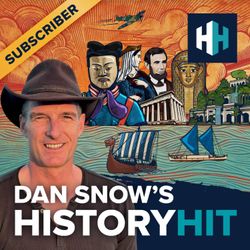
1763. The Ancient Greek World
41:42||Ep. 1763From the 8th century BC, waves of Greek settlers fanned out across the Mediterranean and Black Sea, driven by scarce land and rising populations. In southern Italy and Sicily - later known as Magna Graecia - they built cities that would rival and even outshine their homelands.Dan is joined by Tristan Hughes, host of 'The Ancients' podcast, to unpack the story of these powerhouse Greek hubs in Italy.Produced by James Hickmann and edited by Dougal Patmore.We'd love to hear your feedback - you can take part in our podcast survey here: https://insights.historyhit.com/history-hit-podcast-always-on.You can also email the podcast directly at ds.hh@historyhit.com.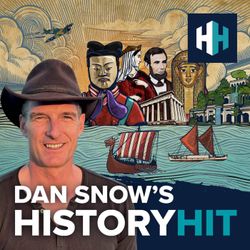
1762. The Forbidden City
01:15:12||Ep. 1762At the heart of Beijing sits the Forbidden City, one of the greatest architectural achievements in human history. It's the largest palace complex on Earth. Constructed in the early 15th century as the hidden heart of imperial power, it was a city within a city — sealed off from the world, governed by rigid ritual, political intrigue, and absolute authority.How did a daring coup bring this colossal complex into existence? What was daily life really like behind its towering walls? And, how did it endure revolution, the rise and fall of dynasties, and catastrophe to become a symbol of China itself? Dan travels to the heart of Beijing to reveal its extraordinary story. You can learn more in Dan's History Hit TV documentary 'Beijing Central Axis: China's Medieval Wonder'. Sign up to watch at: https://www.historyhit.com/subscribe.Produced by Mariana Des Forges and edited by Dougal PatmoreYou can email the podcast at ds.hh@historyhit.com.
NEW SERIES: THE COMMANDERS
01:41|Our world is shaped by decisions — bold, reckless, and often irreversible. And nowhere did choices matter more than in the Second World War, the deadliest conflict in human history. In our new mini-series starting on Monday March 2nd 2026, we step inside the war rooms where history was made by six towering commanders.With leading historians, Dan Snow unpack the strategies that reshaped continents — from Zhukov’s relentless Eastern Front offensives to Montgomery’s iron-tight control in the West.Make sure you follow Dan Snow’s History Hit to get new episodes every Monday in March!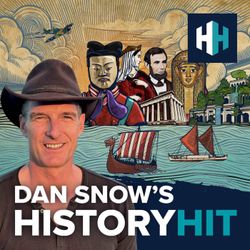
1761. The Trial of Charles I
41:46||Ep. 1761More than 350 years ago, something unprecedented happened in Britain: a reigning king was arrested, put on trial, and executed. You may have seen many news outlets refer to this historic event, given the current news agenda regarding Andrew Mountbatten-Windsor. We want to give you the history behind those headlines: what really happened in 1649, and how the English parliament came to pursue capital punishment for a reigning monarch? This episode from our archive dives into the extraordinary chain of events from Charles I's arrest to the moment of his execution. Dan is joined by Dr Rebecca Warren from the University of Kent for a day by day account of the trial and this dramatic case that still echoes through history to the present day. Dan Snow's History Hit is now available on YouTube! Check it out at: https://www.youtube.com/@DSHHPodcastSign up to History Hit for hundreds of hours of original documentaries, with a new release every week and ad-free podcasts. Sign up at https://www.historyhit.com/subscribe.You can also email the podcast directly at ds.hh@historyhit.com.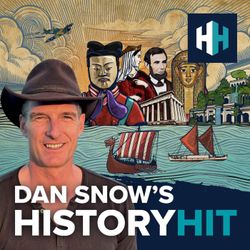
1760. Royal Siblings, Scandals and Crises
28:11||Ep. 1760The arrest of Andrew Mountbatten-Windsor, formerly Prince Andrew (who denies any wrongdoing and is innocent until proven guilty), has encouraged news outlets to look at the precedent of royals falling foul of the law. Many have referred to the trial and execution of Charles I over 350 years ago as the last British royal to be arrested, but that isn't technically the case...in this bonus episode, Dan gives a potted history of the many times royals - princes in particular - have found themselves in trouble with the law and with their monarch siblings. From the rivalries of the Anglo-Saxon and Norman kings to the scandals of the Plantagenets and the Georgians, this is a tumultuous account of Britain's monarchy through the ages. Written by Dan Snow, produced by Mariana Des Forges and edited by Dougal Patmore.Dan Snow's History Hit is now available on YouTube! Check it out at: https://www.youtube.com/@DSHHPodcastSign up to History Hit for hundreds of hours of original documentaries, with a new release every week and ad-free podcasts. Sign up at https://www.historyhit.com/subscribe.You can also email the podcast directly at ds.hh@historyhit.com.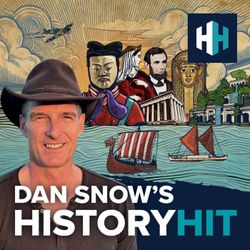
1759. The Peasants' Revolt
43:26||Ep. 1759In 1381, after plague, famine and war had pushed England to the brink, a final blow sparked an extraordinary uprising. This episode explores the Peasants’ Revolt, not as a chaotic riot, but as a coordinated challenge to royal and religious power in England.To cut through the myths, we're joined by medieval historian Dr Eleanor Janega, co-host of the 'Gone Medieval' podcast. She explains what really happened, why it mattered, and how this rebellion sent shockwaves through medieval England and beyond.Produced by Mariana Des Forges and edited by Dougal Patmore.Dan Snow's History Hit is now available on YouTube! Check it out at: https://www.youtube.com/@DSHHPodcastSign up to History Hit for hundreds of hours of original documentaries, with a new release every week and ad-free podcasts. Sign up at https://www.historyhit.com/subscribe.We'd love to hear your feedback - you can take part in our podcast survey here: https://insights.historyhit.com/history-hit-podcast-always-on.You can also email the podcast directly at ds.hh@historyhit.com.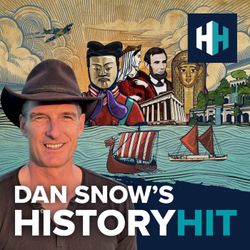
1758. The First Vikings in Iceland
39:32||Ep. 1758From icy seas to fire-lit longhouses, Dan heads to Iceland to trace the birth of one of the world’s most unique medieval cultures — at the very edge of the known world. He joins experts across the country to discover how those early Vikings survived brutal winters in total isolation, save for their tight-knit communities and (surprisingly) warm turf houses. He explores the remarkable medieval chronicle Book of Settlement (Landnámabók) and the dramatic stories preserved in the Sagas of Icelanders (Íslendingasögur) that tell us who the first settlers were, where they came from, and how they carved out a new society on a raw volcanic island.Produced by Anne-Marie Luff and edited by Dougal PatmoreYou can see Dan's adventures in Iceland in his brand new documentary on History Hit. Sign up to watch the mini-series Icelandic Vikings here: https://www.historyhit.com/subscribe.If you'd like to explore Iceland yourself, head to https://www.visiticeland.com/You can email the podcast directly at ds.hh@historyhit.com.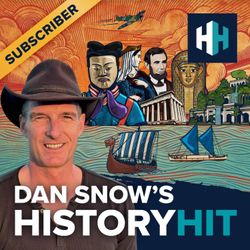
1757. The Picts
36:33||Ep. 1757Who were the Picts, the warriors who stalked Rome’s northern frontier and refused to be conquered? In this episode, we explore how they resisted empire, expanded their power across northern Britain, and built a kingdom of their own. Finally, we tackle the great mystery - why did the Picts disappear?For this, we're joined by Professor Gordon Noble, Senior Lecturer in Archaeology at the University of Aberdeen.Produced by James Hickmann and edited by Dougal Patmore.We'd love to hear your feedback - you can take part in our podcast survey here: https://insights.historyhit.com/history-hit-podcast-always-on.You can also email the podcast directly at ds.hh@historyhit.com.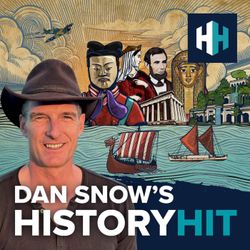
1756. The Scandalous Private Life of Charles II
30:00||Ep. 1756He had at least 14 known mistresses and a hoard of illegitimate children; Charles II's private life was as politically charged as it was scandalous. He presided over the Restoration court, a world of excess, intrigue, gambling, gossip and a lot of sex. Dan is joined by the host of the Betwixt the Sheets podcast, Dr Kate Lister, to explore the salacious side of Restoration England and examine how power, pleasure, and reputation collided at court.A warning that this episode isn't suitable for children! Produced by Mariana Des Forges and edited by Dougal Patmore.You can learn more about Nell Gwynn from Kate in her TV documentary on the History Hit website: sign up at https://www.historyhit.com/subscribe to watchDan Snow's History Hit is now available on YouTube! Check it out at: https://www.youtube.com/@DSHHPodcastSign up to History Hit for hundreds of hours of original documentaries, with a new release every week and ad-free podcasts. Sign up at https://www.historyhit.com/subscribe.We'd love to hear your feedback - you can take part in our podcast survey here: https://insights.historyhit.com/history-hit-podcast-always-on.You can also email the podcast directly at ds.hh@historyhit.com.